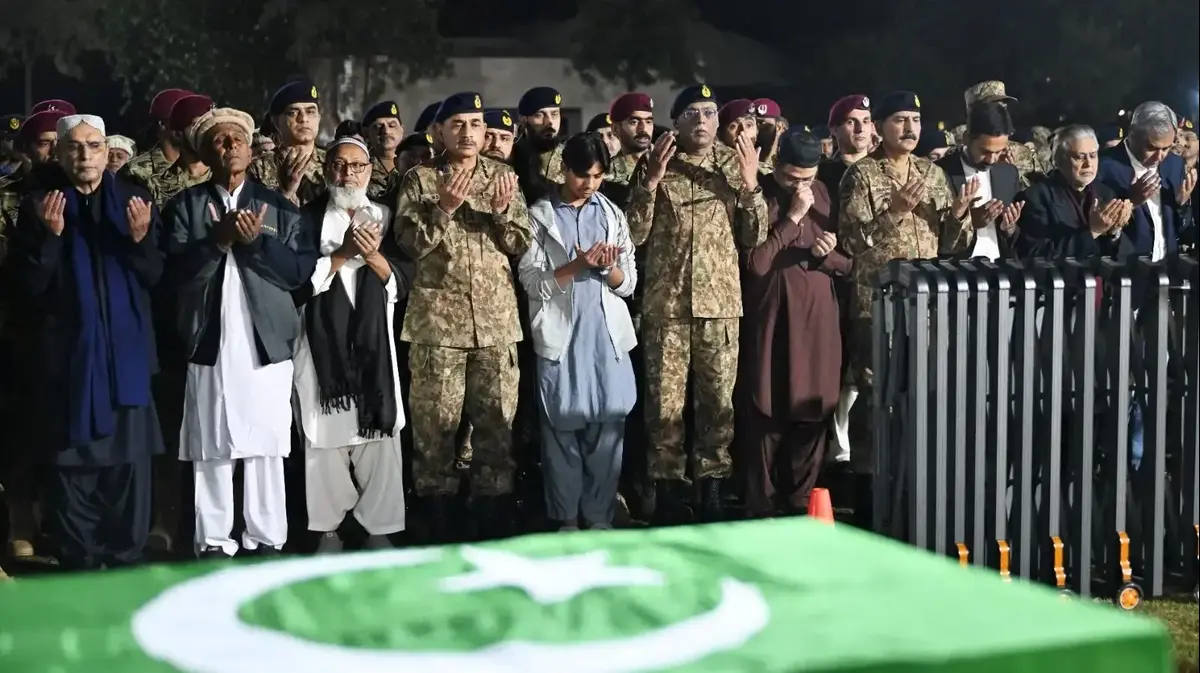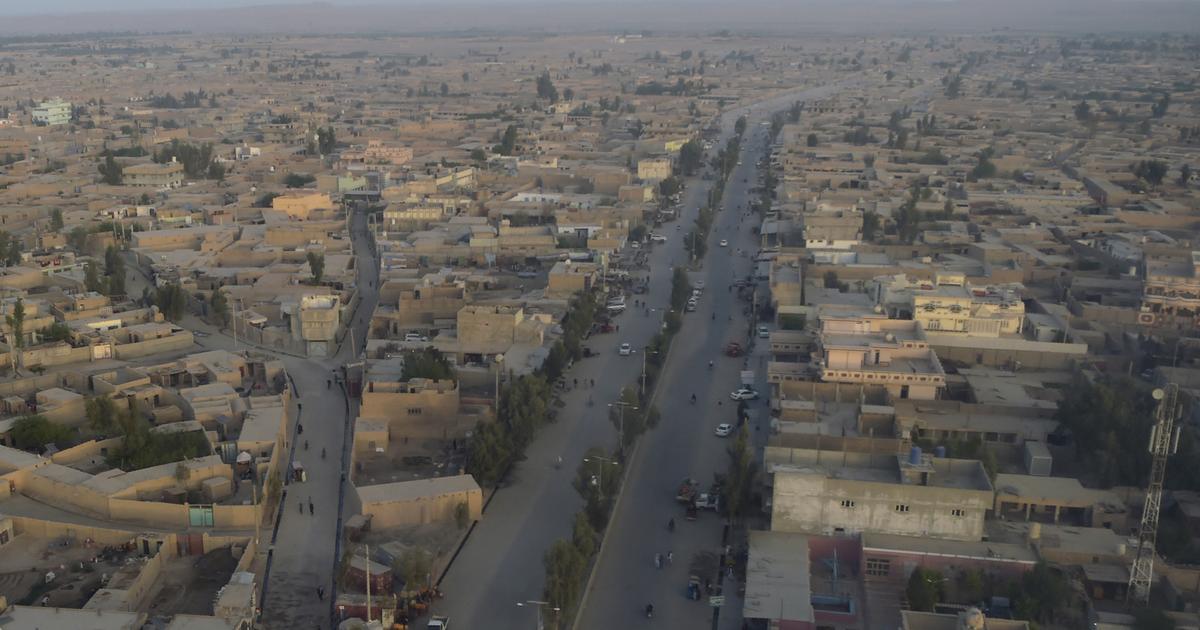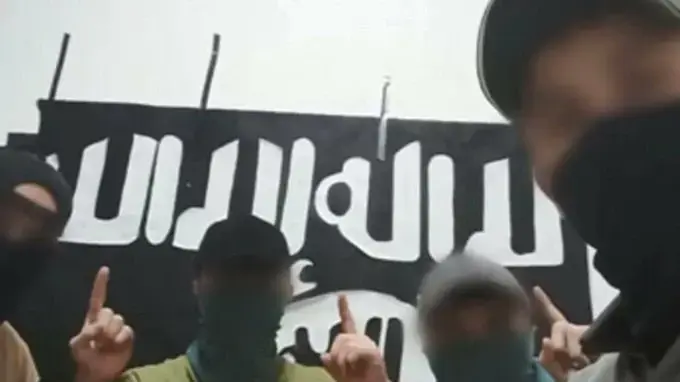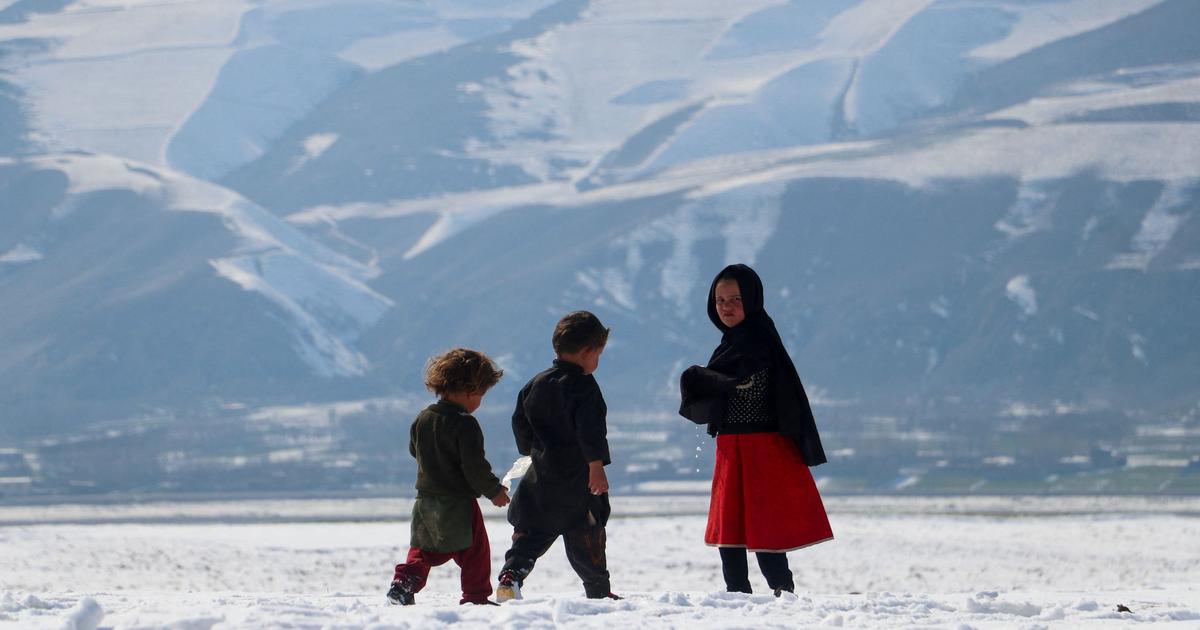Ismael Wague (center), spokesman for the putschists, at a press conference
Photo: Uncredited / dpaA military escort picked up President Ibrahim Boubacar Keïta and his Prime Minister Boubou Cissé in the Malian capital Bamako last week and brought both men to the garrison town of Kati. Keïta later announced his resignation there. It must have felt like a success for many of the people who have been protesting his government on the streets for months.
But the coup will not solve the country's problems. On the contrary: chaos in Bamako could tear the already unstable region deeper into the abyss.
For France and its allies, the coup is a diplomatic nightmare. The French have stationed 5,100 soldiers in the Sahel as part of their "Barkhane" anti-terrorist operation, and the UN has 15,000 blue helmets for its "Minusma" mission. The Bundeswehr is also supporting the mission with up to 1,100 soldiers. The end of the corruption and incompetent government of Keïtas, which in Mali was seen by many as a lackey of France, means for France the loss of a main ally in the fight against Islamic terrorism in the Sahel.
Government opponents and soldiers in Bamako after the coup against President Ibrahim Boubacar Keïta
Photo: ANNIE RISEMBERG / AFPFrance faces a difficult task: on the one hand, it must condemn the coup, on the other hand, it will be forced to cooperate with the new leadership. The military junta has just announced that they want French and blue helmet soldiers to continue doing their jobs; but she also announced that the military was planning to stay in power for three years. It is unclear who will be France's allies in the future.
"Operation 'Barkhane' ... continues," tweeted French Defense Minister Florence Parly last week. The swift reaction should show determination in the face of increasingly anti-French sentiments and the growing question of whether France is embroiled in an endless war here.
Because the violence that has plagued the West African country since 2012 has not subsided. In the eyes of many Malians, the French are not helping to improve anything. The French are repeatedly referred to as occupiers at demonstrations, and UN convoys are pelted with stones. The attempt to win the hearts of the Malians too can be regarded as a failure.
At a rally last Friday, signs read: "Stop the genocide by France in Mali", "Death of France and its allies" and "Down with France and its governor".
In theory, the coup could turn things around for the better, but a more competent government should have been installed now. And not a military junta. Security experts do not rule out a collapse of what is left of the Malian state.
Indeed, there is a risk that the coup will turn back time. In 2012, when the last coup rocked the country and the army collapsed, uncertainty in Bamako and armed uprisings in the north ensued. The army collapsed. Chaos broke out in the country. The Tuareg rose, allied themselves with Islamist groups and quickly overran large parts of northern Mali. In early 2013, the French intervened and drove the insurgents back into the desert.
The situation is even more complicated today. In addition, there is a destabilized central Mali and an increasing ethnicization of the conflict, which has given rise to hundreds of self-defense militias.
It remains to be seen whether it will be different this time. Ten days after the coup, the military junta released Ibrahim Boubacar Keita, who had been ousted by it. Keita is free and in his residence, said a spokesman for the military rulers on Thursday. The move took place one day before the West African community of states Ecowas discussed further sanctions against the putschists.
However, it can be seen as certain that a possible power vacuum would be used immediately by the various al-Qaida and IS allies who already rule parts of the country. It would then be up to the French and the UN to stop the advance.
Months ago, François Lecointre, the chief of staff of the French armed forces, said his troops are likely to remain in the Sahel for the next 30 years.
Now he said on Radio France-Inter: "We will never achieve a final victory, the army will never march victorious under the Arc de Triomphe."
Icon: The mirror













